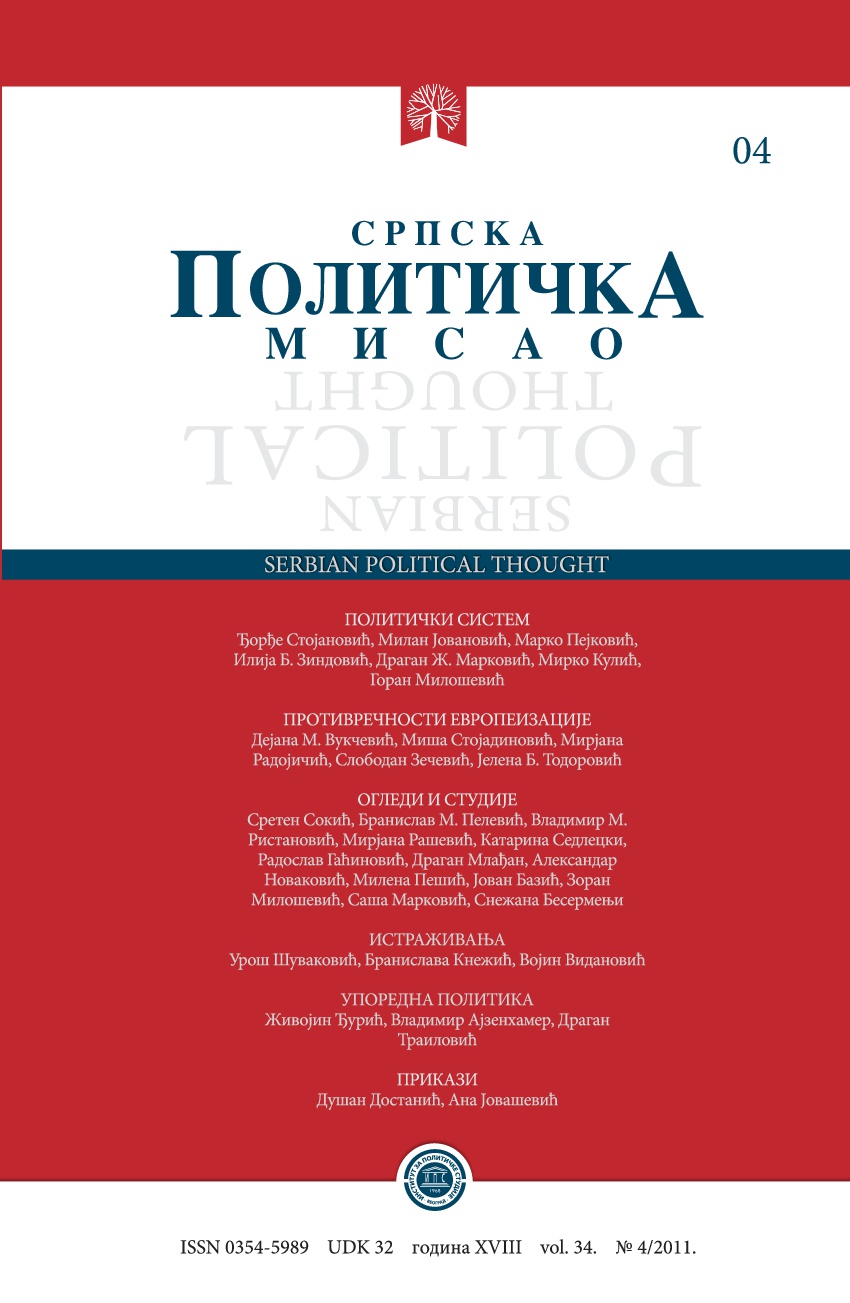Оружана побуна – проблем безбедности демократске државе
Armed Rebellion – The Problem of Security in a Democratic State
Author(s): Radoslav Gaćinović, Dragan MlađanSubject(s): International Law, Government/Political systems, Security and defense
Published by: Институт за политичке студије
Keywords: state; democracy; capacity; system; security;
Summary/Abstract: This paper reflects the attempt of the authors to define internal armed rebellion as a conflict which poses a serious threat to the concept of the security system in a democratic state. In the Serbian language the word „conflict“ means „contraposition“, „disagreement of the opposite views (interests)“, „controversy“, „quarrel“, „hostile armed collision“, „clash“ etc. The basis of the philosophical understanding of the conflict was set by Heraclitus. Everything is constantly changing, and each change represents a mean between two opposite states. Conflict is a common phenomena, and everything raises in conflict and necessity. Contemporary theories about social conflicts can be classified to those which understand the conflicts as a pathological state of the social organism, or as a fact of life of the individuals and collectivity, as well as theories which understand conflicts as processes or a certain state. The internal armed rebellion lines up in the medium-intensity conflict, with the aim to grow into a civil war or an insurrection. However, contemporary law draws the difference between a rebellion and a civil law. Contemporary system of international law considers a rebellion as an internal question of the state, and in its exclusive jurisdiction. That means that the rebellion represents a postponed politico-military activity, aimed at achieving total or partial control of the resources of the country by using the nonregular armed forces or ilegal political organizations.
Journal: Српска политичка мисао
- Issue Year: 2011
- Issue No: 4
- Page Range: 277-293
- Page Count: 17
- Language: Serbian

